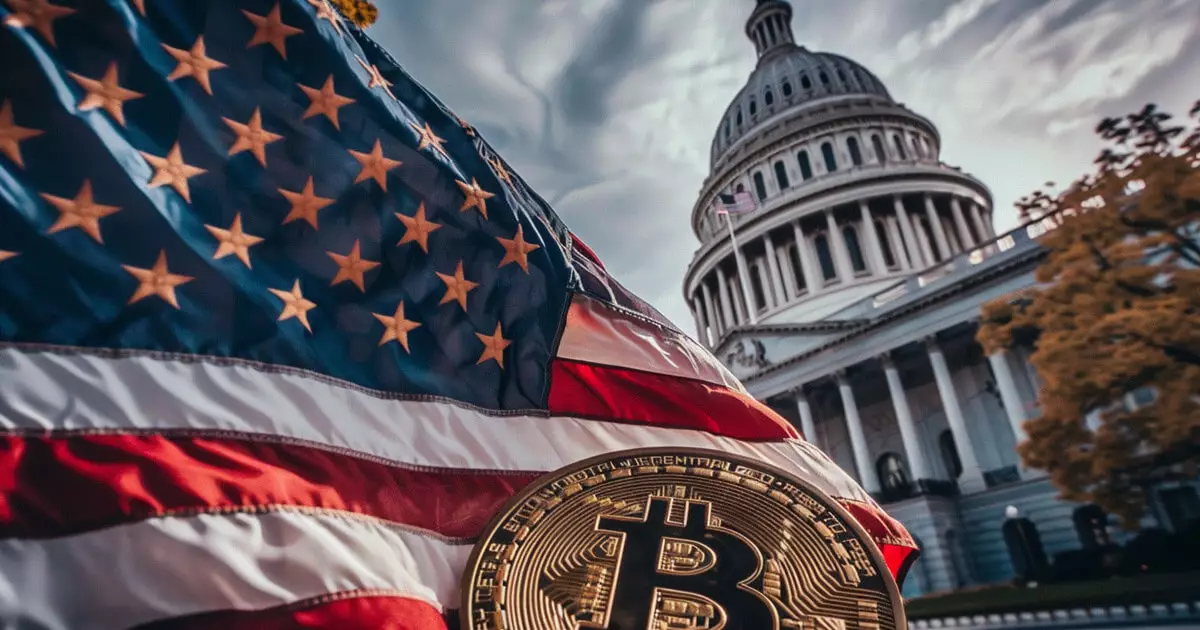In a compelling push for progress on the issue of stablecoin regulation, Congresswoman Maxine Waters, the ranking Democrat on the House Financial Services Committee, has urged for a bipartisan agreement by the end of 2024. This call to action arose during a crucial committee hearing held on September 24, where Waters articulated her belief that a regulatory framework for stablecoins is not just desirable but necessary. She emphasized the importance of constructing a legislative environment that includes rigorous federal regulations and effective consumer protections. The urgency is palpable, as lawmakers from both sides of the aisle have been wrestling with this complex issue since 2022.
Stablecoins, a form of digital currency pegged to stable assets, have seen exponential growth but lack a comprehensive regulatory framework. Waters expressed optimism, citing ongoing collaborations between herself and Republican Rep. Patrick McHenry, the committee chair, who have been actively working together on legislation aimed at stabilizing this emerging market. Their joint efforts hint at a rare moment of bipartisanship within a predominantly polarized political landscape, yet significant barriers remain.
One of the most contentious aspects of the ongoing discussions has been disagreements over the role of state versus federal regulators. A provision of the bill under consideration would allow state regulators to approve stablecoins without requiring the Federal Reserve’s oversight, a concept Waters vehemently opposed as “deeply problematic.” This friction underscores the complexities of navigating regulatory jurisdictions in a rapidly evolving financial landscape, raising questions about who should have the authority to govern such currencies. The need for strong federal oversight becomes particularly evident when considering the potential risks associated with stablecoins that are not backed by secure reserves.
Waters stressed that a foundational component of any regulatory framework must include backing for stablecoins by secure assets, such as government bonds. This perspective reflects a broader trend in international financial regulation, where central banks maintain a supervisory role in digital currency oversight. Conversely, McHenry has echoed the need for progress in terms of broader digital asset clarity, indicating hope that swift action could lay the groundwork for greater regulatory harmony.
As legislative deadlines loom, it’s clear that cryptocurrencies are under increasing scrutiny from lawmakers and regulators alike. McHenry’s mention of his separate legislation, the FIT21, focused on the overall structure of the crypto market, indicates a parallel pathway is being pursued. Concurrently, lawmakers are sharply questioning the U.S. Securities and Exchange Commission (SEC) regarding its ambiguous regulatory outlook on digital assets. Testimonies from all five SEC commissioners, including Chair Gary Gensler and Commissioner Hester Peirce, highlighted significant frustrations regarding the agency’s approach to regulation.
Critics, particularly among Republican lawmakers, have characterized the SEC’s methods as “regulation by enforcement,” arguing that this strategy is detrimental to the growth and innovation inherent in the industry. Peirce, sharing concerns with her colleagues, acknowledged that while the SEC possesses the tools necessary to provide clear classifications of tokens and regulatory guidelines, it often refrains from doing so. This lack of clarity has led to confusion among market participants, underlining the urgent need for a more straightforward framework that could ultimately foster greater trust in the digital asset space.
The landscape of stablecoin and digital asset regulation is fraught with challenges but also ripe with opportunities for meaningful reform. The optimism shared by Waters and McHenry underlines a critical sentiment: consensus is essential to forge a well-rounded regulatory approach that can protect consumers while enabling innovation. As the legislative clock ticks down, lawmakers must prioritize reaching a resolution that harmonizes federal oversight with state interests, ensuring that the United States can be a leader in the safe adoption of financial technologies.
The collaborative spirit on display between Democrats and Republicans in addressing the stablecoin conundrum offers a glimmer of hope. The stakes are high, and with the potential for broad implications for the economy, stability, and consumer protection, it is crucial for Congress to act decisively. The future of stablecoins hinges on these discussions, making it imperative that lawmakers seize this moment to lay a strong foundation for the digital currency ecosystem to thrive.

